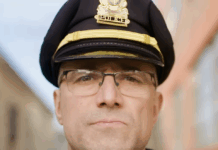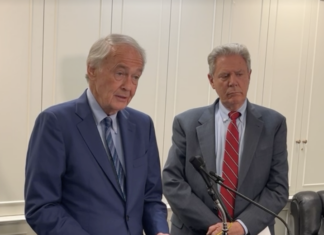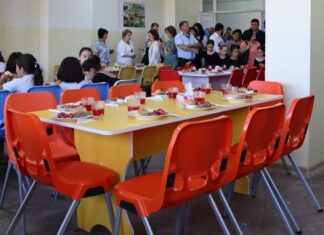By Arthur Hagopian
JERUSALEM — For the first time within living memory, the Armenian church in Jerusalem is to have a coadjutor patriarch whose primary mission will be to assist the incumbent guardian of the keys of St. James, Archbishop Torkom Manoogian, in the administration of the affairs of the Armenian Patriarchate of Jerusalem.
The measure, proposed by Manoogian himself, was put forward at one of the sessions of a four-day marathon conclave held in Jerusalem last week and attended by members of the priestly Brotherhood of St. James.
Bowing to the wish of the ailing patriarch, who is in his 90s, the 28 participants of the 19th general assembly of the Brotherhood, who have all been ordained in Jerusalem (and of whom many are serving the church overseas), adopted a resolution to consider the issue of holding elections at an opportune time.
The need for a coadjutor has become increasingly crucial recently in view of Manoogian’s tenuous health which is creating difficulties for him and preventing him from attending to some of the myriad tasks his office requires, and at the same time giving cause for concern to those around him.
Sources close to the Patriarchate said the conclave, presided over by Manoogian and co-chaired by Archbishop Khajag Barsamian, head of the Diocese of the Armenian Church of America (Eastern), discussed the “issues concerning the patriarchate and its far-flung establishments in the Holy Land, particularly the churches and convents in Ramleh, Jaffa and Bethlehem, and reaffirmed the need to maintain and preserve these holy places.”
The meeting also approved the budget for the following year. The patriarchate oversees an extensive array of institutions besides the Armenian holy places. These include the Gulbenkian library, the St. Tarkmanchatz parish high school, the theological seminary and the museum, and relies heavily on donations to meet its payroll. Its sole income is from the rent of properties it owns in West Jerusalem.







